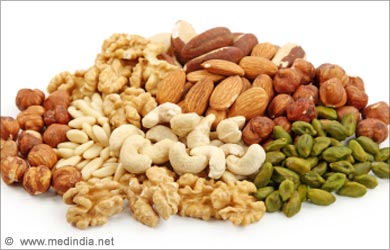
Iron, in general, plays the role of transportation of oxygen to various parts of the body through blood. A deficiency of iron in the blood could lead to weakness, fatigue and general lethargy, all of which are common symptoms of anemia."Iron is an essential nutrient, meaning that we must get it through our food choices. Nearly 80 per cent of people don''t get the daily iron requirement through their food choices, so it is important to be mindful when planning your meals," Ange Peters, personal trainer and holistic nutrition coach, London, explained. "Low iron levels can cause iron-deficiency-anemia which will show itself in various ways such as low energy, dizziness, pale skin and peeling nails."

While anemia is not a life-threatening disease in general, chronic anemia is linked to heart failure, which is potentially fatal. An individual following a healthy diet is, in very rare cases, susceptible to iron deficiency anemia; however, given that the diet of most of us today is largely composed of processed, packaged foods, the condition is affecting many around the world.While popping a pill seems to be the easiest possible option for every health problem today, the best way to obtain iron without the adverse effects of tablets is through food.
Tackling iron deficiency anemia is surprisingly easy, and tasty too! Here we've listed down some of the best iron-rich foods, which when added to the diet, can help naturally boost the levels of iron in the blood, and prevent anemia.
• Meat and Fish Sources- Beef, lamb, pork, poultry, prawns, salmon, tuna, chicken, haddock, turkey, mussels, oysters, clams, cuttlefish, perch, sardines, veal and ham are excellent meat sources of iron. Eggs are also a good breakfast choice for individuals prone to iron deficiency.

Keep in mind that you should stick to organic, fresh meats as opposed to processed and cured meats. Processing tends to strip foods of its natural nutritive value, which makes the food less likely to complete your nutritional requirements.
• Plant Sources- The best plant sources for iron include beet, potatoes, broccoli, spinach, green peppers, peas, turnip greens, kale, parsley, dried coconut, olives, lentil sprouts, swiss chard.

While most plant sources do contain adequate amounts of iron, it may not be completely absorbed by the body.
• Nuts- Dried fruits and nuts like squash and pumpkin seeds, cashew nuts, peanuts, pine nuts, hazelnuts, almonds, macadamia nuts, apricots and raisins are excellent natural sources of iron.
Nuts can be excellent iron-rich snacks for those hunger pangs when you crave for a cheesy burger or a spicy sandwich. Just grab a handful of nuts when you're out shopping or feel a craving coming up-you'll be ditching the unhealthy junk food, and adding iron to your blood!

• Grains and Others- Beans like white beans, kidney beans, black beans, soybeans, lima beans, black eyed peas and chickpeas are good sources of iron. Others include barley, rice, buckwheat, millet, oatmeal and quinoa. Dates and jaggery too are amazing natural sources of iron.

Adding more of these foods to your diet can help prevent iron deficiency anemia and other health problems linked to it.
Vitamin C increases the absorption of iron; therefore it would be wise to eat foods containing vitamin C with the above.
No comments:
Post a Comment